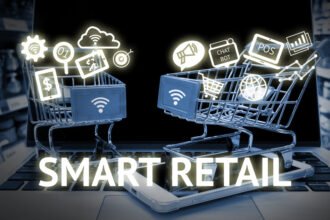

In 2001, Gartner analyst Doug Laney, coined the term “big-data”, to articulate the impending explosion in Volume, Variety, and Velocity (“the 3 Vs”) of data in society. Much has been talked since about big-data. Today the term big-data is primarily used to describe “how” technology can handle these large and disparate sets of data, not “what” can be done with big-data.
Infonomics – In the late 1990s, Doug also coined another important but lesser known term, “Infonomics”, to assert the “economic significance of information”. Infonomics refers to a framework by which businesses could value, manage and most importantly wield information as a revenue generating asset.
Infonomics signifies the business value of information and if that’s the case should companies not embrace the concept to enhance customer experience, generate new revenue, innovate product & service offerings, and optimize margins?
While companies have traditionally leveraged information to manage expenses, drive operational efficiencies, mitigate risks etc., the purpose of this post is not to delve into those use cases.
Rise of the info.-disruptors – While companies such as Amazon, Google,LinkedIn, Netflix are all well known to monetize information, and in the process have displaced many retailers, newspapers, recruiting firms, media companies respectively; many recent startups such as Uber, AirBnB, and Alibaba are disrupting many other industries.
Think about it –
Uber – Worlds largest taxi company, owns no cars
AirBnb – World’s largest hospitality company, owns no properties
Alibaba – World’s most valuable retailer, owns no inventory
So how are these info.-disruptors able to compete with traditional incumbents and capture marketshare?
Essentially, these nimble startups have leveraged information generated in the marketplace to better serve customers and in the process generate revenue and gain marketshare. The fact that these startups had no information to start with and had to create a marketplace for such information to be freely shared by consumers, speaks volumes to their innovation potential. They create compelling value propositions in the marketplace for a latent or unmet need, so much so, that consumers willingly adopt and share information to satiate their needs.
Traditional incumbents in these markets i.e., taxi operators (Uber’s competition), hospitality companies (AirBnB’s competition), retailers (Alibaba’s competition) and others have not proactively seized the opportunity. The sad fact is that most of these incumbents also sat on rich sets of information about their customers, product / service consumption patterns, etc. and did very little to better serve their customers and protect or enhance market shares.
Are traditional brick and mortar companies ready for the massive disruption that’s ahead? In my opinion, it may not be long before we see many traditional products and services dissolve as information that is delivered over software in the network ether. In such a scenario, are traditional brick and mortar incumbents prepared to handle the disruption?
Here are some of the examples of what is already happening in some industries.
Higher Education – Massive Open Online Courses (MOOCs) is a rising trend with universities throwing open their course content (almost free). Companies such as Coursera and Edx are offering software platforms that facilitate this mechanism and in the process are generating large sets of data that can be used in enhancing the learning experience and a potential opportunity for monetization.
Payments – Growth in multiple payment channels that facilitate monetary exchange in the context of customer preferences and their unique transactional needs have changed the thinking from a “bank as the center of the universe” paradigm – e.g., ACH debit or Wire Transfer. Companies such as Square, PayPal, Apple Pay, Google Wallet etc. are redefining such payment mechanisms and with it the information and monetization opportunities.
Banking – Financial disintermediation, a process by which, deposits are directly channeled to fund loans, bypassing the banking system, is becoming an interesting business model. Companies likeLending Club make peer to peer lending possible. Other examples such as Wealth Front disrupting wealth management firms oreToro using social data for investment advice and trading are abound. If you want to read more on eToro and social information being used in stock trading, please see my earlier post here http://informationanalytics.tumblr.com/post/65281414830/dont-believe-in-society-or-yourself-when-it-comes
Other Examples –
Philanthropy – Kiva dis-intermediating non-profits in charity
Conferences – Meetup as a free alternative to groups sharing knowledge
Healthcare – Wearables and Ingestibles promoting healthy lifestyles
Home Automation – Google acquisition, Nest, manages home experience
Transportation – Driverless cars disrupting automobile manufacturers
Shipping & Military – Drones shipping packages and fighting wars
….and these are just a few in an endless list of examples.
So is this all “doom and gloom” for traditional companies? I personally don’t think so. Everything depends on how traditional companies respond to this challenge. Will they treat it as an opportunity and invest; or will they perceive it as a threat and hunker down? Such decisions will result in outcomes and their eventual existence.
In my opinion, as products and services turn into information and software, the lines of distinction between traditional companies and info.-disruptors will disappear. It will be a free market with little entry barriers. Not only will traditional assets on a balance sheet such as real estate, fixed assets, inventory etc. cease to be entry barriers, but when unmanaged could become an overhead and a drag on the incumbents. Traditional companies that see the opportunity in leveraging information and building competitive business models will thrive, and in the process become info-disruptors themselves. There are some early examples of such companies e.g., Walmart, USAA, and Capital One. I will dedicate a future blog post about the innovation in these companies.
Is your traditional brick and mortar company and industry ready to monetize information? If not, start thinking about a strategy and build the leadership and teams to be put in place? No, and you will not find the skills in your industry. Your best bet is to look for data analytics professionals from the software industry with proven solutions experience.
Welcome all your thoughts.






